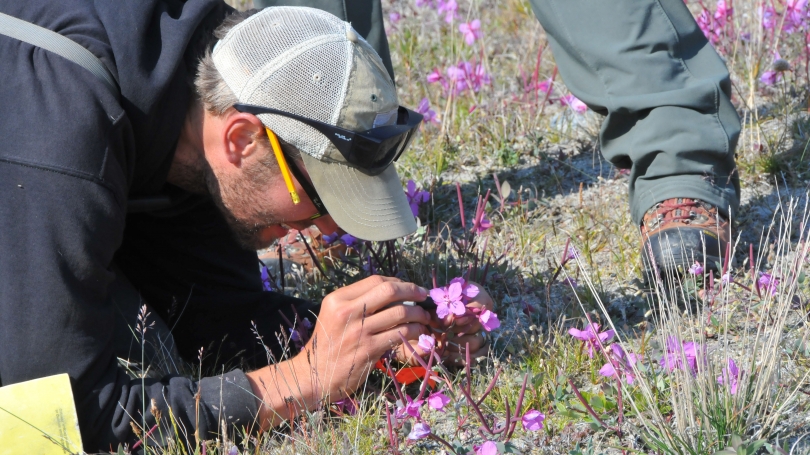
- About
- Programs
- Student Opportunities
- For Faculty
- News & Events
Back to Top Nav
Back to Top Nav
Back to Top Nav
Back to Top Nav
Back to Top Nav
Ecology and Evolutionary Biology
As the climate changes, spring is arriving earlier and earlier across the globe. The migration of birds, mating of amphibians, and emergence of insects and flowers is happening earlier than it historically has due to the warming climate and early arrival of spring. The timing of these natural history events (known as "phenology") can have dramatic consequences for species reproduction and survival.
For example, when flowering plants bloom too early, the probability of experiencing frost damage and drought increases. Furthermore, approximately 90% of flowering plants require pollination by bees or other organisms for reproduction, but the phenology of bees might not respond to climate change at the same rate as flowering phenology. Therefore, plants and bees could emerge at different times, and experience a "phenological mismatch," which is hypothesized to have negative consequences for both plants and bees. Although we know that plant reproduction tends to decrease when plants bloom too early, we do not know why, specifically.
The focus of Zak's research is to untangle the mechanisms behind changes in plant reproduction as phenology varies, which will help to understand how plants and pollinators will respond to climate change. You can see what Zak has been up to lately at zakgezon.com.
Read about Zak's Filene Teaching Award in 2011.
YouTube: Zak Gezon talks about how humans are affecting bees